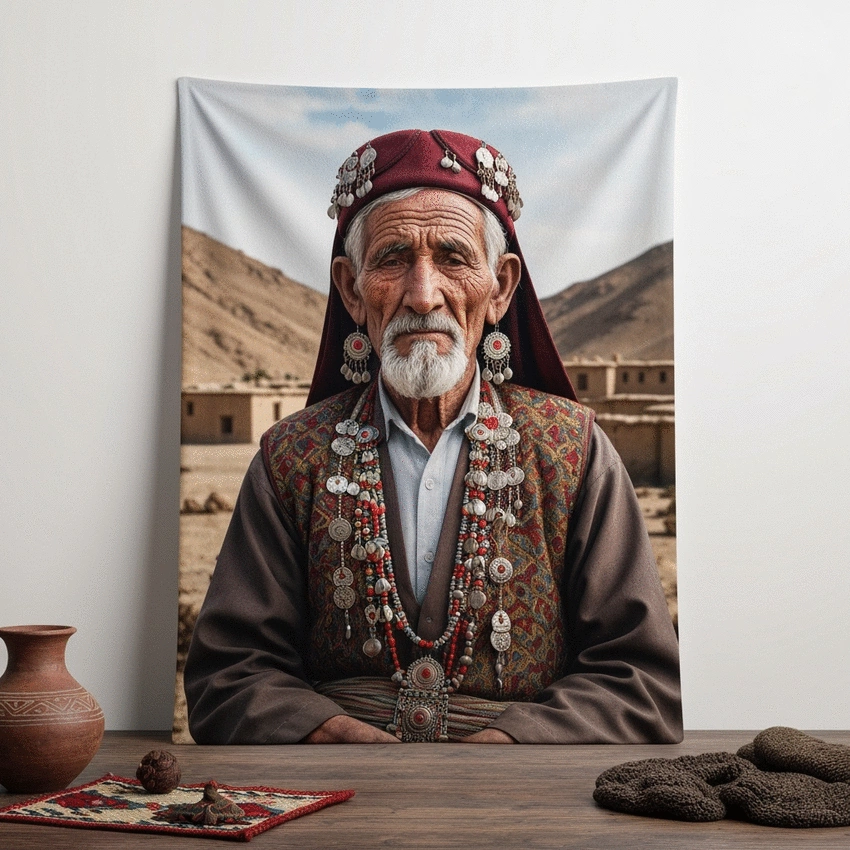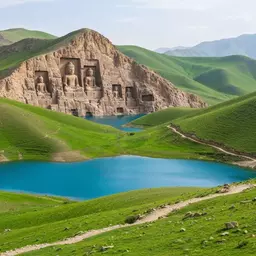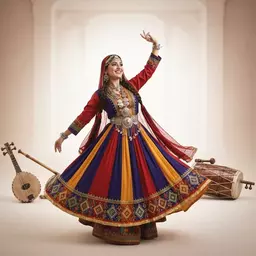Exploring Afghanistan's Natural Landscapes
By Khalid Rahimi / Feb 25
Did you know that the essence of Afghan culture is intricately woven into its tribal customs? Understanding these traditions not only enriches our knowledge of Afghanistan but also highlights the complexities of its social fabric.
This visual outlines the foundational principles of Pashtunwali and the broader impact of Afghan tribal customs on community cohesion, governance, and cultural identity.
In Afghanistan, tribal customs serve as a backbone for the rich tapestry of cultural identity. These traditions, deeply rooted in the history of the land, provide a sense of belonging and community among various groups. The essence of these customs is often reflected in the principles of Pashtunwali, a code of conduct that shapes social interactions and community dynamics.
As we explore these customs, it's fascinating to see how they influence not only interpersonal relationships but also the broader societal structures within Afghanistan. Through this lens, we can better appreciate both the beauty and complexity of Afghan culture.
Pashtunwali embodies the core values of the Pashtun people, representing a system of ethics that governs their way of life. Its foundational principles include honor, hospitality, and justice. While Pashtunwali serves to stabilize communities and foster a sense of belonging, it also brings about tensions, particularly for women and minorities who may find themselves marginalized. For a deeper understanding of its impact on women, you can refer to this resource on how Pashtunwali affects women and minorities.
Understanding these principles allows us to grasp how they shape interactions and societal expectations within Afghan tribes. The dual nature of Pashtunwali—both as a unifying force and a source of exclusion—highlights the complexities of Afghan identity.
The key values guiding Afghan tribal life extend beyond Pashtunwali. Honor, hospitality, and generosity are interwoven into the social fabric of these communities, influencing daily etiquette and interactions. For instance, greeting someone warmly and offering food is a customary practice that speaks volumes about one's respect and willingness to connect.
The importance of these customs in daily life and governance is further detailed in this insightful policy paper on Afghan tribal practices and their impact on local governance.
These values create a unique social dynamic that enhances community ties and fosters mutual reliance. Navigating these customs is essential for anyone wishing to understand the intricate nature of Afghan culture.
Hospitality is not just a custom; it is a way of life in Afghanistan. The act of welcoming guests with open arms is deeply ingrained in tribal traditions and reflects the community's spirit. This is particularly important in a country where connections are crucial for survival and prosperity.
This emphasis on hospitality not only strengthens personal relationships but also enhances community cohesion. By participating in these customs, one gains a deeper appreciation for the values that bind Afghan society together.
The interplay between tribal customs and local governance is crucial to understanding Afghanistan's socio-political landscape. Tribal governance structures, such as the Jirga and Shura councils, play significant roles in resolving conflicts and making decisions that affect community life.
As we delve into this topic, we will uncover how these traditional practices coexist with modern state systems, providing insight into the challenges and opportunities that arise. Further information on the role of traditional councils in conflict resolution can be found in this study on conflict resolution through local customs.
To truly appreciate Afghan tribal customs, consider participating in local community events. Engaging with the people and their traditions firsthand not only enriches your understanding but also fosters meaningful connections. Whether it's sharing a meal or attending a celebration, these experiences offer a unique glimpse into the heart of Afghan culture.
As we've explored, traditional Afghan customs play a vital role in shaping community dynamics, governance, and social structures. From the principles of Pashtunwali to the influence of local councils like the Jirga and Shura, these customs are woven into the fabric of daily life in Afghanistan. Understanding these intricacies is essential for appreciating how they impact not just individuals, but entire communities.
Therefore, it becomes clear that these customs not only reflect the past but also influence the ongoing evolution of Afghan society. As we consider the dynamic interplay between tradition and modernity, we are reminded of the importance of these customs in fostering a resilient and culturally rich Afghanistan.
Now that we've unpacked the complexities of Afghan customs, I encourage you to delve deeper into this fascinating world! Understanding these traditions is not just an academic exercise; it's about appreciating the heart and soul of Afghanistan. Whether you’re a traveler, researcher, or simply curious, there’s so much to learn!
At Afghanistan Map, we’re passionate about connecting people with Afghanistan’s rich heritage. Join us in exploring the stories behind the landscapes, the people, and the customs that shape this remarkable nation. Your journey into understanding Afghan culture starts here!
Here is a quick recap of the important points discussed in the article:

 Exploring Afghanistan's Natural Landscapes
As we navigate the rich tapestry of Afghanistan's landscapes, one can’t help but marvel at the pro
Exploring Afghanistan's Natural Landscapes
As we navigate the rich tapestry of Afghanistan's landscapes, one can’t help but marvel at the pro
 Bamyan Province Travel Highlights
Have you ever considered how a single province can encapsulate the essence of a nation's history, cu
Bamyan Province Travel Highlights
Have you ever considered how a single province can encapsulate the essence of a nation's history, cu
 Afghan Culture Through Music and Dance
In times of uncertainty, the power of music and dance becomes a beacon of hope, reflecting the spiri
Afghan Culture Through Music and Dance
In times of uncertainty, the power of music and dance becomes a beacon of hope, reflecting the spiri